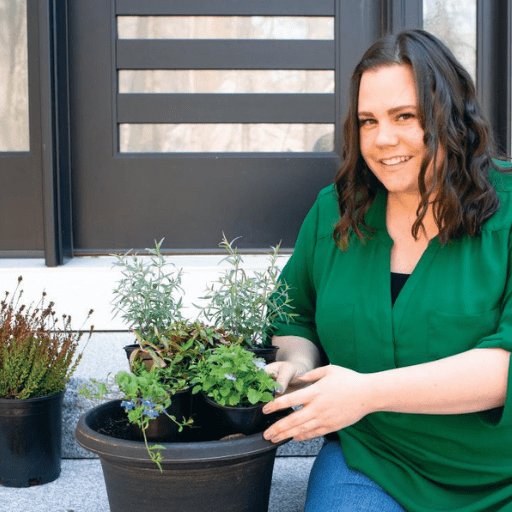Herbs and plant medicines have been used for centuries as traditional medicines for common health concerns and to support the body in healing and overall health. In modern times, herbs have also been used to support people in recovery. Curious to learn more?
It was her own curiosity about herbal healing that led Paula Kersch to found Botanically Curious, a southern Maine herbalism company that offers consultations and educational events to help people understand how to use herbs to promote wellness, including using plant medicines in recovery support.
Paula’s journey to head herbalist at Botanically Curious began with her need to find new solutions for issues going on in her health. “I started noticing my work life affecting my health, still being in my 20s and not receiving specific answers from doctors on why things weren’t quite right with my body, so I decided to do some investigation and research on my own.”
This path led Paula to herbal medicine, which not only helped her find her own way back to wellness, but ignited a new passion that she knew was important to share with others. “I took ownership over my health, went back to school for herbalism and bought a farm! I never intended to start a company, I was just curious about herbs and how I could utilize them for my health,” she describes.
Today that curiosity has taken the form of helping others understand options for plant-based medicines for their own health. “Botanically Curious Offers 1-1 consulting with clients where we go through an intake process, establish an energetic profile and make recommendations on herbs best suited for the body,” Paula explains.
Other core offerings of Botanically Curious are entertainment-education based classes and events that help introduce people to the world of herbal healing. Regular offerings include herbal mocktail and tea tasting and how to wild forage for herbs in Maine. Botanically Curious also offers Home & Hearth services to teach people how to grow herbs at home and use herbs in foods.
In everything Botanically Curious does, “we aim to educate people on the phytochemistry and science behind WHY these herbs work in the body and in what ways. Our mission is to make herbal application easy for everyday life … whether that is a class, ongoing consulting support, foraging walks or private events,” Paula confirms.
Herbs for recovery support
When the body needs added support in recovery to return to a state of balance and wellness, herbs can help.
“Herbs can be really useful in making healthy swaps,” Paula notes. For example, herbs can serve as an alternative to alcohol as a key ingredient in fun and tasty “mocktails.” Herbal ingredients help turn these drinks into health tonics.
According to Paula, “Herbal mocktail mixers aren’t just juice and fizzy water…it’s education on herbs you can use to restore the body from stress, which will also support your body to make more health decisions moving forward.”
As for specific herbs that can help, if you drink chamomile tea when you need to calm your mind at the end of a stressful day, you are already using herbal healing in your life. Other helpful herbs include milk thistle, which supports liver health, and Tulsi (Holy Basil), an adaptogenic herb that helps to rebuild resilience from stress.
Paula is able to work with clients to build a personal herbal support plan.
“[For example,] if you lift weights and need more holistic alternatives for recovery in the body, work with Botanically Curious 1-1 through our consulting to create a plan that works best for your body without added stimulants. Bring your friends to a mocktail tasting so you can connect and learn about herbs together. If you like to cook or garden, book a Home and Hearth service to get guided support to include herbs that will add to your recovery efforts,” says Paula.
Wild foraging for herbs can also become a fun and healthy hobby for anyone looking to swap old habits for something new and fun. “To get outside and move more, come to a foraging walk and start to practice sustainable foraging. Once you know how to do it, you can get free, nutrient dense foods to help support your body.”
Most of all, Paula recommends for people to, “Stay curious and don’t be afraid to start. Asking for help allows you to build a new community of supportive, like minded people. Botanically Curious is easy to get a hold of through social media if you have herbal application questions and find out about future events!” Find Botanically Curious on Instagram at @botanically_curious.




